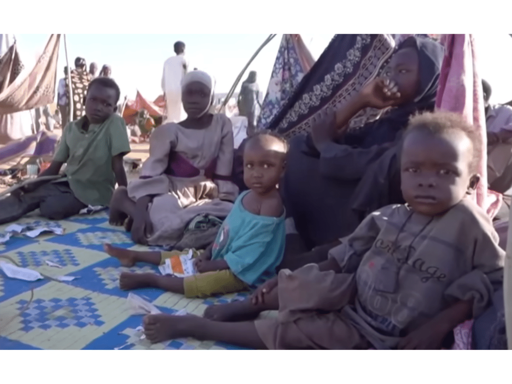In a notice published Wednesday 5 November, the Trump administration quietly removed visa protections for South Sudanese nationals. US Citizenship and Immigration Services (CIS) announced that the war in southern Sudan had eased and that citizens may return home — even as conflict and famine persist — to justify the termination of their protection status.
Temporary Protected Status
The Obama administration originally put Sudan’s Temporary Protected Status (TPS) in place back in 2011. Successive administrations extended it many times, finally expiring on Monday 3 November. Historically, TPS has allowed immigration by individuals from countries wracked by wars, environmental disasters, and political unrest.
The CIS statement reads:
After reviewing country conditions and consulting with appropriate U.S. Government agencies, the Secretary determined that South Sudan no longer continues to meet the conditions for the designation for Temporary Protected Status. The Secretary, therefore, is terminating the Temporary Protected Status designation of South Sudan as required by statute. This termination is effective [INSERT DATE 60 DAYS AFTER DATE OF PUBLICATION IN THE FEDERAL REGISTER]. After [INSERT DATE 60 DAYS AFTER DATE OF PUBLICATION IN THE FEDERAL REGISTER], nationals of South Sudan (and aliens having no nationality who last habitually resided in South Sudan) who have been granted Temporary Protected Status under South Sudan’s designation will no longer have Temporary Protected Status.
As a note, the text here is unaltered. The department didn’t remove the form text from its announcement.
Over 230 South Sudanese individuals are currently living in the US under the TPS. Jennie Murray, president of the National Immigration Forum, told Newsweek that:
Terminating TPS is upending the lives of hundreds of thousands of people, pulling vital workers from key sectors of the U.S. economy and creating deep uncertainty for both recipients and employers. States like Florida and Texas will face the brunt of the impact. Congress must pass long-term solutions to allow TPS recipients to keep working and living legally in the U.S.
Broader pattern of destruction and expulsion
Trump’s removal of South Sudan’s TPS status is part of a broader pattern being perpetrated by the Trump administration. When Trump returned to office, 16 countries were on TPS list. However, the president claimed that the Biden administration had abused TPS, and even went as far as to say that TPS recipients were residing in the country ‘illegally’.
In this year alone, the US government has removed — or at least attempted to remove — TPS for nationals of nine different countries. This has meant that hundreds of thousands of people, some of whom have lived and worked in the US for many years, are being forced to leave.
Haiti and Venezuela are two of the countries for which Trump attempted to revoke temporary protected statuses. They expose the glaring contradiction between the government’s designation of these countries as ‘safe’ while issuing severe travel warnings.
Likewise, the US still has ‘do not travel’ warnings in place for Sudan, and the travel advisory itself states:
Armed conflict continues in Sudan. This includes heavy fighting among the Sudanese Armed Forces, the paramilitary Rapid Support Forces, and various armed militias. The situation is violent, volatile, and extremely unpredictable, particularly in the Kordofan and Darfur regions, as well as in the capital region, including Khartoum and Omdurman.
Kordofan, in particular, is in South Sudan, along with the besieged city of Al Fashir in the south-west.
UN Newsreported that the Rapid Support Forces agreed to a ceasefire on 6 November, as proposed by the US and Arab countries. However, Sudan’s national army never signed on. New reports hold that attacks are still ongoing, including around government-held Khartoum.
War and famine
UN human rights chief, Volker Türk, also issued a plea for an “immediate end to the violence both in Darfur and Kordofan.” Just last week, a joint statement from the UN’s Food and Agriculture Organization (FAO), the World Food Programme (WFP) and UNICEF also confirmed famine conditions in Darfur and South Kordofan.
The Trump administration deems these conditions of war and famine acceptable for the return of Sudanese nationals, which it otherwise classifies as unsafe for US nationals. We are obviously far beyond the pretence that US immigration policy is motivated by anything other than the most vehement racism. Still, it manages to shock, even now.
Featured image via the Canary
From Canary via this RSS feed



Evil is as evil does. Also stupid for imperial meddlers.